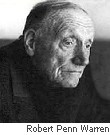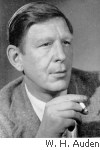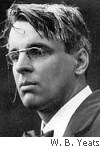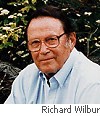
A Fine Line
An essay on Tim Murphy and his work, by Alan Sullivan
The vitality of a literary movement depends on the emergence of distinctive voices. Formalist poets should welcome the deep-chested Midwestern speech of Timothy Murphy. His poetry reflects an unusual life and eclectic, even eccentric interests. As a farmer and businessman, he has a firm grip on the practical and particular. As an avid, if erratic reader, he has some acquaintance with other times and cultures. As a gay man living in a small town, he has contended with isolation and prejudice. In the course of this essay I hope to illuminate his work from my vantage as an editor and occasional collaborator.
Timothy Murphy’s first book, The Deed Of Gift (Story Line Press, 1998) appears in his forty-seventh year. Thematically organized, it represents a selection from the work of more than two decades. Inevitably such a structure obscures the provenance of individual poems. The careers of many poets divide into distinct phases as new interests and influences come to bear on their work. The Yeats of “Brown Penny” seems a very different man from the Yeats of “Crazy Jane Talks With The Bishop.” When a poet publishes frequently, his work arranges itself chronologically, and transitions are clear. In Murphy’s case, they are more obscure.
Why has this estimable poet waited so long to publish? Chiefly because he despaired of finding an audience. He began writing verse at the same time as other young formalists, but he was unaware that anyone else wanted to challenge the hegemony of free verse, which looked so unshakeable from the remote vantage of the Midwest. Physically and artistically isolated, he found his unique voice in the silence of his native prairie. Yet the young Suzanne Noguere felt no less isolated in New York City, while Dana Gioia, working in Minneapolis, never crossed paths with Murphy, who was also employed there for a time. In the 1970’s it was reasonable for a would-be formalist to believe no one could revive the fading tradition of Auden and Frost.
Of course Murphy could have adapted to the fashion of the day. Several of his student exercises in free verse were actually published by The Yale Review in 1971, but he loved the sounds of meter and rhyme too much to abandon them. His tutor at Yale, Robert Penn Warren, had required him to memorize and recite thousands of lines. A fine reader with a powerful speaking-voice, Murphy mesmerized otherwise unpoetic peers with Shakespeare, Keats, and Yeats. Such exercises are invaluable for tuning the ear to metrical speech. Without them, it is exceedingly difficult to attain any facility with meter.
 Warren also urged his pupil to undertake a business career rather than pursue graduate studies. No enthusiast of academic life, the old laureate thought young writers needed experience of the world to inspire them. In the early 1970s Minneapolis was changing from an overgrown farm-town to a genuine city. There Murphy worked at an insurance agency by day, while hobnobbing with musicians and artists by night. His chief poetic models during this period were Yeats and Kavafy. He wrote mostly in pentameter. His lines were often metrically and grammatically awkward. Naturally he was pleased when some of his verse appeared in a New York magazine called Christopher Street.
Warren also urged his pupil to undertake a business career rather than pursue graduate studies. No enthusiast of academic life, the old laureate thought young writers needed experience of the world to inspire them. In the early 1970s Minneapolis was changing from an overgrown farm-town to a genuine city. There Murphy worked at an insurance agency by day, while hobnobbing with musicians and artists by night. His chief poetic models during this period were Yeats and Kavafy. He wrote mostly in pentameter. His lines were often metrically and grammatically awkward. Naturally he was pleased when some of his verse appeared in a New York magazine called Christopher Street.
Before Murphy left Connecticut, his mentor had offered one additional piece of advice. If he intended to pursue “this madness” of meter and rhyme, suggested Warren, he should contact Richard Wilbur for further tutelege. By 1978 publication and admiring friends had enhanced Murphy’s confidence enough for him to send Wilbur a packet of poems. The reply, though prompt and courteous, was also strict and daunting. Wilbur told the novice not to imagine sensational subjects could substitute for charged language, lively rhythms, or vivid rhymes. In subsequent letters he offered invaluable examples of editorial rigor as he dissected the flaws of individual lines. He also proffered some sparse but cherished words of praise.
Murphy decided he had a lot more work to do before he could measure up to such exacting standards. He did not seek publication again for many years, and he let the correspondence with Wilbur lapse. A major shift in his life and career were at hand. In 1980 he moved from Minneapolis to Fargo, North Dakota. Murphy had grown up in the small town of Moorhead, Minnesota, just across the Red River from Fargo. Now his father was ready to reconcile with an errant first-born son and accept him as successor in the family business.
Work as an estate planner brought Murphy into contact with the farmers of the Red River Valley, who cultivate some of the most fertile land on earth. Soon the businessman acquired a farm of his own, tilled in partnership with the son of a dead client, whose family would have lost their land to taxes without the assistance of Murphy’s firm. Over the next fifteen years Murphy experienced first-hand the tribulations of agriculture: drought and flood, hailstorms and blizzards, locusts and bankers. Here were the grit and the grist that Robert Penn Warren had sent his student to find.
The Deed Of Gift begins with poems of the prairie. In this new setting Murphy’s poetry turned stark and spare. The pentameter of “The Failure” and “Razing The Woodlot,” both written in the early 1980’s, tightened into the bleak trimeter and dimeter of “Kelly’s Lament” and “Buffalo Commons.” Later the poet initiated his experiments with extremes of musicality in “Harvest Of Sorrows,” which I quote here in full:
Harvest Of Sorrows
When swift brown swallows
return to their burrows
and diamond willows
leaf in the hollows,
when barrows wallow
and brood sows farrow,
we sow the black furrows
behind our green harrows.
When willows yellow
in the windy hollows,
we butcher the barrows
and fallow the prairies.
The silo swallows
a harvest of sorrows;
the plowshare buries
a farmer’s worries.
Now harried sparrows
forage in furrows.
Lashing the willows,
the north wind bellows
while farmers borrow
on unborn barrows.
Tomorrow, tomorrow
the sows will farrow.
I shall refrain from any detailed discussion of this unusual work, except to remark that its feminine rhymes make it difficult to categorize metrically. Tim scans its dominant foot as the amphibrach. R. S. Gwynn hears in such lines as “we butcher the barrows” or “tomorrow, tomorrow” the conventional iamb followed by a fantastical, hypermetrical anapest. Scansion is not a science but an art, and such differences of opinion can never be definitively resolved.
 It is no accident that Murphy uses an almost exclusively Anglo-Saxon language in his dark hymns to the land. Words of Latin derivation are scarce, Greek entirely absent. In this regard his usage favors the harshness of early Auden over the fluidity of Yeats. Working at the northern limits of English, the Irish-American has even tried writing in Lalland Scots. One Scots poem, “Passel o’ Pups,” survived culling and appears in the fourth section of The Deed of Gift. Several others exist in manuscript. Since his teenage years Tim has shared Auden’s youthful fascination with Old English and its Norse relatives. On the prairie he found themes well-suited to the starkness of these tongues.
It is no accident that Murphy uses an almost exclusively Anglo-Saxon language in his dark hymns to the land. Words of Latin derivation are scarce, Greek entirely absent. In this regard his usage favors the harshness of early Auden over the fluidity of Yeats. Working at the northern limits of English, the Irish-American has even tried writing in Lalland Scots. One Scots poem, “Passel o’ Pups,” survived culling and appears in the fourth section of The Deed of Gift. Several others exist in manuscript. Since his teenage years Tim has shared Auden’s youthful fascination with Old English and its Norse relatives. On the prairie he found themes well-suited to the starkness of these tongues.
As Richard Wilbur suggests in his preface to The Deed Of Gift, these “songlike” poems reflect “the high morale of a man who has a purchase on reality, however bleak.” If poetry is ever to regain the broad audience it has lost through the self-indulgence of aesthetes, it must learn how to sing again; and it must sing of places and experiences familiar to a wider public. I do not mean to suggest that poets need lessons from Nashville or Broadway. But I should like to hear more of them recovering the self-confidence to deploy the full music of our language, whether they prefer its Latin-Norman vocabulary or the Anglo-Saxon.
 Although Murphy outgrew the lilt of Yeats, in other respects the dead master remained an important influence on him. Murphy always admired the large lines and large visions of Yeats’ bravura works; but he was more drawn as a poet to the mysterious songs, especially “Words For Music Perhaps.” So in a poem like “Eighty-Eight At Midnight,” Murphy shifted and blurred his rhymes unpredictably, starting with couplets, then lapsing into irregular off-rhyme, as a dreamer might drift into nightmare. Lines ranged from four to seven syllables, wavering between dimeter and trimeter. Murphy had not yet encountered the stricter formalism of Timothy Steele or R.S. Gwynn.
Although Murphy outgrew the lilt of Yeats, in other respects the dead master remained an important influence on him. Murphy always admired the large lines and large visions of Yeats’ bravura works; but he was more drawn as a poet to the mysterious songs, especially “Words For Music Perhaps.” So in a poem like “Eighty-Eight At Midnight,” Murphy shifted and blurred his rhymes unpredictably, starting with couplets, then lapsing into irregular off-rhyme, as a dreamer might drift into nightmare. Lines ranged from four to seven syllables, wavering between dimeter and trimeter. Murphy had not yet encountered the stricter formalism of Timothy Steele or R.S. Gwynn.
Eighty-Eight At Midnight
A black calf bleats
at shrivelled teats.
Incessant heat
withers the wheat
and wilts the silking corn.
Too few, too late
the spotty showers
mock my stunted flowers.
Too late I shrink from debt.
Like a spitted calf I turn
over a bed of coals
while the pastures burn.
Like his father in 1936, Murphy watched drought sear the plains in 1988. Crop failure on his indebted farms nearly forced him into bankruptcy. He also experienced a poetic drought that persisted long after the rains returned. “Eighty-Eight At Midnight” was not written until 1992. By then businessman/farmer was solvent again, with time and energy to spare for poetry. A year later it rained all summer, the wheat rotted in the fields, and the farmer found himself “Twice Cursed” under “The Godless Sky.” Reliving family history, Tim was obliged to sell off most of his acreage.
Although he lived on and by the land, recording such rural curiosities as “The Peg-Leg Pig,” Murphy retained some of the urbane tastes acquired in youth. A fondness for travel gave rise to the poems in “Je Me Souviens,” the second section of his book. But the travels tended to peculiar locales like Baffin Island and Belize. Several of the poems in part two also explore, in a very understated, almost covert manner, the ramifications of love between men, setting the lovers in wilderness, rather than farm or city.
The poems of part two also date from different periods, each distinguished by a shift in the predominant form of new work. Thus a later piece like “Bedrock,” which is strictly rhymed and metrically rigorous, is closely juxtaposed with the older “Lonesome Peak,” which is odder and more irregular, like many of the poems written around 1990, when the author was most attuned to the muse of “Words For Music Perhaps.” The pentameter of “The Quarrel” places it earlier still, and links it to the Christopher Street poems.
The Quarrel
Climbing in sullen silence past treeline
where blasted spruces drunkenly incline,
we stumble on two racks of caribou.
Clasped in a deadlock neither bull could break
they bleach beside a frigid Yukon lake —
amateurs who never locked horns with you.
In this poem the lurching trochees of the first and last lines neatly echo the theme. The reader can almost hear antlers clash, an effect reinforced by numerous plosives. Yet the angry mood is also undercut by the implicit puns of “blasted” and “drunkenly,” then definitively dispelled by the humor of the final line. The result, paradoxically, is a poem of affirmation composed entirely from the blackest and bleakest material. This sense of permanence was confirmed twelve years later by the incredibly terse “Bedrock,” which concludes the section:
Bedrock
Though I endure the shore
Moorish villas
bougainvilleas
surely I love you more
by waterfalls than fountains
for our friendship
came of hardship
wandering the mountains.
How far removed this is, in every sense, from the strident expressions of sexual liberation prevalent at the time. Nor has it anything in common with the mytho-poetical imposture of Robert Bly. It is more akin to the sensibility of the Irish poet Patrick Kavanagh, who once wrote, “I know nothing of women, nothing of cities.” The artifacts mentioned — villas, flowers, and fountains — are unmistakeably feminine, the waterfalls and mountains unabashedly masculine. This is the declaration of a plain-speaking plainsman who never lost that boyhood sense of communion with nature, which Wordsworth sentimentalized so long-windedly.

In late 1993 Murphy resumed contact with Richard Wilbur after a lapse of fourteen years. The two arranged to meet in Florida that winter. Since leaving Minneapolis, the prairie poet had worked in complete isolation. Now through Wilbur he learned of Timothy Steele and Dana Gioia. Soon he was reading their work for the first time. Within a year both of these younger men had visited Fargo, followed later by R. S. Gwynn and Dick Davis, all of whom read at a local college, Moorhead State. Murphy also met the professor and poet who hosted these readings, David Mason, co-editor of the formalist anthology, Rebel Angels (Story Line Press, 1996).
Though now affiliated with these exemplars of New Formalism, Murphy remains distinct among them, marked by his peculiar history and affinities. So far as I have seen, no other contemporary poet writes of the land with such authority. Nor does anyone else compose rhymed trimeter in such abundance, though others have used the form equally well. Dick Davis has produced outstanding poems in trimeter quatrains, for example, “A Recording Of Guiseppe di Luca” and “Zuleikha Speaks,” both in his collection, A Kind Of Love (University Of Arkansas Press, 1991).
In short line poetry, the quality of enjambment becomes a paramount consideration. It is relatively easy to write distinct lines in pentameter, though many formalists are quite lax about lineation. Five feet allow plenty of scope for subjects and predicates, phrases and clauses. But three feet, or two? Consider again the poem “Bedrock,” quoted above. Each line has a definite identity and constitutes a thematic whole, even the line which consists of a single word. Yet there are no weak endings — no prepositions, articles or conjunctions. Of course Murphy has indulged himself a bit by omitting commas in lines one, two and three. These are not true enjambments. But the succeeding lines achieve the near-impossible with a seeming ease that redeems the pat rhyme of “fountains” and “mountains.” Formalists need many such redemptive moments if they expect to derive contemporary work from the tradition they inherit.
Spurred by new friends and new reading, Murphy has written more consistently in recent years. Enthusiasm is hard to sustain in isolation, but it thrives on the correspondences, critiques and competition of a literary movement. Inevitably, the poet’s contact with New Formalism has changed his work. Section three of his collection opens with “Two Songs For Richard Wilbur.” Now the literary and historical interests of youth revive, but they find expression in forms Murphy forged for recounting the travails of North Dakota farming. Here also this intensely private man begins to search out a public voice in his title poem, “The Deed Of Gift,” though he fails to reflect — if I understand this murky work rightly — how little JFK’s “literary taste” really meant in the conduct of private or public life.
Some readers may weary of the short poems and epigrams in this part of the book. Murphy’s concision sometimes becomes a weakness, undercutting his ability to sustain or develop a thought. Still, it is hard to quarrel with the painful humility of “Yggdrasil:” “I am the least leaf / on the tiniest twig / of an unseen tree / inconceivably / bigger than me.” Or to gainsay the frightening “Ant Lion,” which yearns to “…fly, / copulate, and die.” Here the brief lines with their feminine rhymes teeter at the brink of disintegration before they resolve in the final couplet. Robert Lowell might have taken several turgid pages to say as much about addiction and despair.
After Emily Dickinson, the most adept American practitioner of short line was probably Robert Frost. Though many New Formalists revere the narrative Frost of “Home Burial” or “The Death Of The Hired Man,” Murphy finds more inspiration in Frost’s lyrics. In his preface to The Deed Of Gift, Richard Wilbur observes that Murphy’s work, at its best, is “worthy of Frost.” Putting that observation to the test, I shall print “Dust Of Snow” above “The Expulsion.”
Dust Of Snow
The way a crow
Shook down on me
The dust of snow
From a hemlock tree
Has given my heart
A change of mood
And saved some part
Of a day I had rued.
— Robert Frost
The Expulsion
Six weeks of drought,
the corn undone
and wheat burned out
by the brazen sun:
over that land
an angel stands
with an iron brand
singeing his hands.
— Timothy Murphy
The formal parallels are striking, despite the difference in subject matter, which is understated in one poem, dramatized in the other. Both poems are comprised of a single sentence, though Murphy’s stanza break is sharper than Frost’s. Both poems feature masterful enjambments. Both use plain rhymes and plain language. Both employ one initial spondee and several anapests, though only Frost extends a line to six syllables, a virtuoso flourish at the close. But “Dust Of Snow” has eighteen stresses in a poem of thirty-six syllables, while “The Expulsion” has twenty in thirty-four. Murphy’s speech is more charged, which befits a poem bound straight for hell, while Frost, for once, hints at redemption.
The fourth part of Murphy’s collection contains the poems I regard as his best. Here his statements are more expansive and less abstract as he writes of his family and home terrain. These are not the affectations of a suburban pastoralist, evading urban realities with leafy meter and rhyme. This work is rural to the core. Tending his orchard beside the Red River, the poet affirms the pagan creed of “the vernal believer.” His tones and forms vary widely: sometimes playful, as in “Feathers,” sometimes restrained and elegiac, as in the lovely tercets of “Air,” threaded with a single off-rhyme that recurs six times.
Air
Come Diktynna come —
once more the mourning dove
coos in the blooming plum.
Mark the wood duck drake
plummeting through a grove,
and greenheads in the brake.
When fledglings try their wings
and waves of migrants heave
skyward in widening rings,
you will not heed my gun
nor leave this grassy grave —
your hunting days are done.
Drowse, Diktynna, drowse
lulled by a humming hive
under the apple boughs.
So stealthily stole death
my love could not retrieve
your evanescent breath.
At last the disparate elements of the poet’s life and personality merge harmoniously. The hunter names his retriever Diktynna Thea, goddess of the hunt; the poet weds the word “evanescent” with his Anglo-Saxon monosyllables. Yeatsean echoes are now deliberate and controlled rather than compulsive. So the “widening rings” are merely a tip of the hunter’s cap, and this poem owes as much to favorite haiku themes as it does to Yeats or the anonymous Scots poet who wrote “yer hountin days are dane.”
The Deed Of Gift includes several other poems about bird-hunting. This fall ritual links contemporary plains dwellers to the tribesmen their forebears dispossessed. Poems of the hunt are authentic tributes to the earth. They tell us that the land shapes people as much as people shape the land. Is it any surprise that some descendants of the sodbusters have gone native? Or that an heir of Yeats, born on the plains, would write “A Dog Young And Old” for his retriever? As Timothy Steele quipped to the author: “You have the advantage of knowing your material better than Yeats knew women.”
The most moving poems in section four are addressed to the poet’s father. These are “Razing The Woodlot” and “The Blind.” Among younger formalists, perhaps only Suzanne Doyle has written so memorably for a parent. How does Murphy avoid the pitfalls of confessional verse? Partly by confessing very little. These poems are grounded in the outer world, not the inner, yet they connect rather than alienate the objective and subjective poles of experience. They are unsparingly unsentimental, as in this evocation of a duck blind: “Father, the dog and I / are learning how to die / with our feet stuck in the muck / and our eyes trained on the sky.” Yet they are also full of feeling for the prairie and its inhabitants, human and animal, even the beleaguered trees.
If the fourth part of Murphy’s book is strongest, the fifth, “Early Poems,” is most problematic. These works are predominantly narrative and historical rather than personal or lyrical. They were the products of a mind still giddy with books and short on lived experience. Had Murphy not taken his mentor’s advice, he might never have transcended this phase, though some readers might actually prefer the explicit eroticism and exotic settings of “Early Poems.” An alert eye will notice they are arranged chronologically by historical period. Oddly enough, this scheme roughly parallels the sequence of composition, as though the poet were groping his way toward the present.
Though reluctant to abandon his early works, Murphy no longer felt their inspiration keenly enough to recast them in accordance with the higher standard of craft he had developed over the years. Instead he loosed me to edit at my own discretion. Some poems survived with virtually no alteration; some were tightened; still others wholly remade; but most remained in the reject stack. Here is one of the earliest, a martial epigram “For The Theban Dead,” in its heterometric original, then a tighter tetrameter.
The Sacred Band of Thebes is overthrown.
On the field of slaughter lover by lover sleeps
and iron-hearted Phillip of Macedon
sags on his bloody horse and weeps.
The Sacred Band is overthrown.
Lover by slaughtered lover sleeps
while iron-hearted Macedon
sags on his bloody horse and weeps.
The changes do not materially alter the poem; they simply enhance its focus and force. Few authors would trust an editor to participate so directly in the creative process, but long before we compiled The Deed Of Gift, I had taken a collaborative role in some of Murphy’s poems. After we decided to include early works in the collection, I spent months poring over them. This project of retrieval and rewriting under the author’s guidance initiated my own switch from prose to poetry. But that’s another story. Perhaps Tim will tell it for me sometime.

Page last updated: Wednesday, March 21, 2007